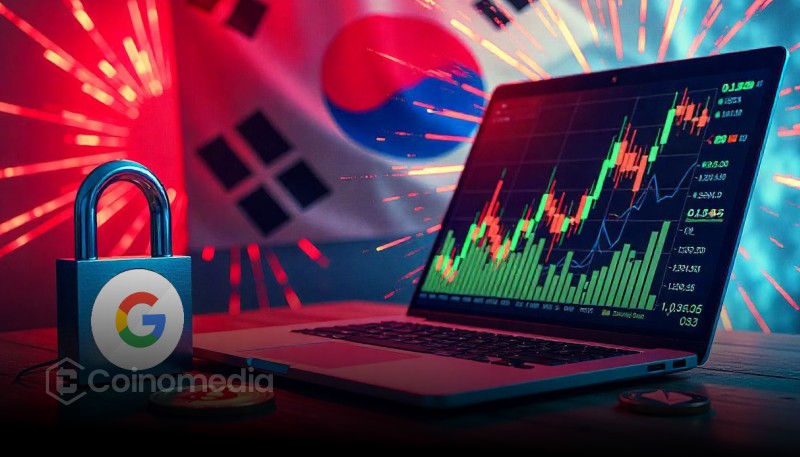Google Blocks 17 Crypto Exchanges in South Korea
Google restricts access to 17 unregistered crypto exchanges in South Korea, including KuCoin and MEXC.

- Google restricts 17 crypto exchanges in South Korea.
- Users can’t install or update related apps locally.
- Action taken at South Korean government’s request.
Since March 25, crypto users in South Korea have been facing new restrictions when trying to access certain global crypto exchange platforms. This change comes after the South Korean government asked Google to block domestic access to a list of 17 cryptocurrency exchanges that have not registered locally.
Some major platforms affected include KuCoin, MEXC, Phemex, and Poloniex, along with others like CoinEX, DigiFinex, and BitMart. These platforms are now restricted on the Google Play Store in South Korea. Users are no longer able to install new versions of these apps or update them if they are already installed.
Why Are These Exchanges Blocked?
South Korea has strict regulations requiring all virtual asset service providers (VASPs) to register with the country’s financial regulators. The aim is to prevent money laundering and protect consumers from unregulated platforms.
These 17 exchanges have reportedly failed to meet local registration requirements, which led to the government’s request for tech companies like Google to enforce access blocks. This move aligns with South Korea’s broader strategy to monitor and control the crypto space more closely.
What This Means for Users
For everyday crypto users in South Korea, this could limit access to popular global platforms and reduce choices for trading and asset management. Although some users may try to find workarounds like using VPNs, these actions could violate local laws or terms of service.
This enforcement highlights the growing tension between global crypto accessibility and national regulatory frameworks. It’s a reminder to users and platforms alike to pay close attention to local laws when engaging in digital asset trading.



